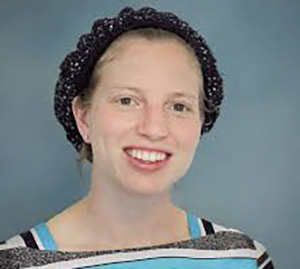
Last summer, University of Michigan researchers gave 68 women MRIs seven weeks after giving birth. What they found was startling: 41 percent had undiagnosed tears in their pelvic floor muscles and 29 percent had fractures in their pubic bones. Another study found that 49 percent of mothers experienced urinary incontinence a year after having a baby, and 77 percent suffered from persistent back pain.
Many women in the frum community quietly endure health concerns like these without realizing how common they are, and that there are treatments available to assist them.
The theme of this year’s Fourth Annual Community-wide Yoetzet Event For Women is: “Am I the Only One…?” The event, which will take place on Wednesday, August 10, at 8 p.m. at Congregation Rinat Yisrael, will feature three experts who will address issues that many women deal with at various life stages, often silently since they erroneously believe that they are the only ones struggling with these challenges.
Panelists include Rivki Chudnoff, a licensed physical therapist with offices in New York and New Jersey; Rachel Hercman, a psychotherapist at Maze Women’s Health in Manhattan who specializes in relationships and sexual functioning, women’s health and trauma and Shoshana Samuels, who serves as the Yoetzet Halacha for the Teaneck community.
The three panelists will address Jewish women’s health from three different perspectives: physiological, emotional and halacha/hashkafa. After sharing stories and examples about the types of issues they come across, they will then answer questions from the audience. Questions can also be submitted anonymously in advance at www.rinat.org/yoetzetevent2016.
“Women are frequently surprised to hear that they are not the only ones struggling with pelvic floor issues, and they are reassured to find out that there are treatments available,” says Chudnoff, who specializes in women’s health and pelvic floor physical therapy. “In our grandmothers’ generation I imagine there was a lot more ‘grin and bear it’ going on, with a quiet acceptance that pain or leaking were just part of life as a woman.” Thanks to modern developments, medical advancements and improved understanding of these conditions, women have many more treatment options available. “It is my hope that women will leave this event empowered to improve their own quality of life,” she says.
Rachel Hercman, who also serves as a consultant to Shalom Task Force, will explore self-awareness as it pertains to sexual and emotional intimacy as well as the effect of the media and popular culture on relationship expectations.
“In this technological age, where we often communicate from behind glass screens, there is something powerful about women joining together face-to-face and addressing issues that are shared by so many but are discussed by so few,” she says. “I am grateful for the opportunity to address sexual intimacy because Shalom Bayis is important and the bedroom is part of the bayis—how things are going there can affect the whole relationship dynamic.”
In addition, hearing that one’s own experience is shared by others can be an incredibly validating feeling, she says.
The evening’s third speaker, Shoshana Samuels, serves as a Yoetzet Halacha at Teaneck’s Rinat Yisrael, Netivot Shalom and Shaare Tefillah (and welcomes questions from all members of the community). She responds to over 1,000 questions about taharat hamishpacha and related women’s health and halacha topics each year from the Teaneck community and regularly consults with local rabbanim on cases.
“This year I would like to stress the benefits of keeping taharat hamishpacha with the confidence the Torah and our sages intended us to have, as we do in other areas of our service of God,” she says. “Confidence in this area is attained, like with most things, through thorough and continued education of the relevant concepts and laws. Women who ask questions can practice the laws of taharat hamishpacha with the assurance that they are doing it right, rather than be tormented wondering, ‘Am I the only one who hopes she’s counting right? Am I the only one who feels like I’m cheating the system? I am the only one who makes herself a niddah more frequently than necessary? Who experiences stress and anxiety in the tahara process? Am I the only one who feels this is just really tough sometimes? Am I the only one that dreads mikvah night? Am I the only one who feels guilty when I make some decision on my own?’”
The goal of the evening, she says, is to assure women that they are not alone in their difficulties with taharat hamishpacha as it relates to the details of observance, the various effects on their spousal relationships, their life-cycle moments from approaching marriage to peri-menopause and every attempt at pregnancy, pregnancy, birth and loss in between and the incredibly difficult realities some of us face with domestic violence and illness, including mental illness. “You’re cared for, you’re a part of a community, you’re supported and ultimately, you’re strengthened,” she says.
An important message is that “the laws of Jewish family life are not meant to make people suffer; if someone is suffering or feels isolated or unsupported,” she adds, “her rabbi and/or yoetzet is here to support her.”
The Fourth Annual Community-wide Yoetzet Event for Women will take place on Wednesday, August 10, at 8 p.m. at Congregation Rinat Israel, 389 West Englewood Avenue, in Teaneck. For more information or to RSVP and/or sponsor the event, please visit www.rinat.org/yoetzetevent2016.










